Uncategorized
-
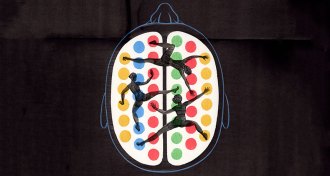 Neuroscience
NeuroscienceLearning takes brain acrobatics
Brains that learn best seem able to reconfigure themselves on the fly, a new line of research suggests.
-
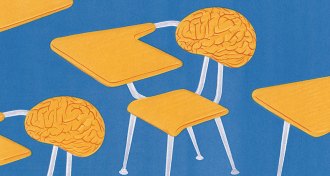 Psychology
PsychologyTeaching methods go from lab to classroom
Cognitive researchers are finding ways to help young students to hold on to all the knowledge and skills they need to succeed in school.
By Susan Gaidos -
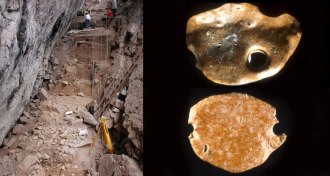 Archaeology
ArchaeologyPeople may have lived in Brazil more than 20,000 years ago
Stone Age humans left behind clues of their presence at a remote Brazilian rock shelter.
By Bruce Bower -
 Earth
EarthNorth America’s largest recorded earthquake helped confirm plate tectonics
Henry Fountain’s 'The Great Quake' mixes drama and science to tell the story of the 1964 Alaska earthquake.
-
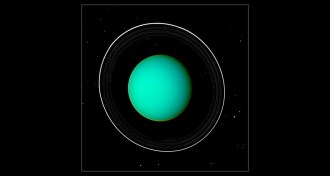 Planetary Science
Planetary ScienceMoons of Uranus face future collision
By studying variations in the rings of Uranus, researchers have determined the mass and density of the planet’s moon Cressida.
-
 Oceans
OceansHow deep water surfaces around Antarctica
New 3-D maps trace the pathway that deep water takes to the surface of the Southern Ocean.
-
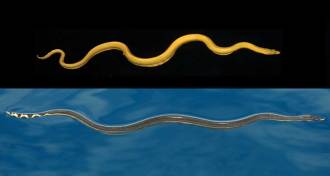 Animals
AnimalsThis sea snake looks like a banana and hunts like a Slinky
A newly identified sea snake subspecies is known to live in a single gulf off the Pacific coast of Costa Rica.
-
 Quantum Physics
Quantum PhysicsMinuscule jitters may hint at quantum collapse mechanism
Vibrations of a tiny cantilever could help reveal why quantum rules fail on large scales.
-
 Tech
TechTiny quantum storage device fits on a chip
Photon information processing on nanoscale could enable future communication networks.
-
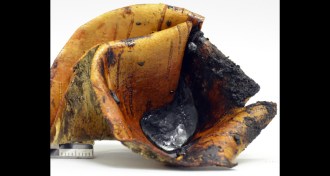 Anthropology
AnthropologyFiery re-creations show how Neandertals could have easily made tar
Neandertals could have made tar with simple methods and materials on hand, new experiments show.
By Bruce Bower -
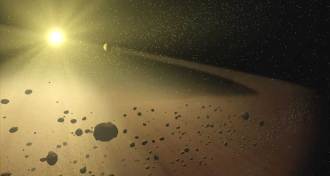 Astronomy
AstronomyTabby’s star is probably just dusty, and still not an alien megastructure
New looks at older data on the weirdly flickering Tabby’s star muddy possible explanations — but it’s still probably not aliens.
-
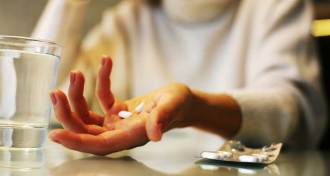 Genetics
GeneticsMuscle pain in people on statins may have a genetic link
Many people stop taking cholesterol drugs because of aches, but it has been unclear if the drugs are at fault.